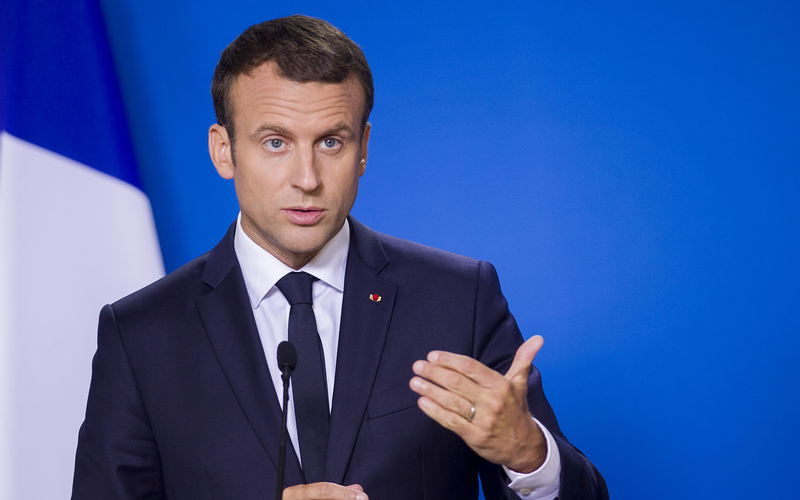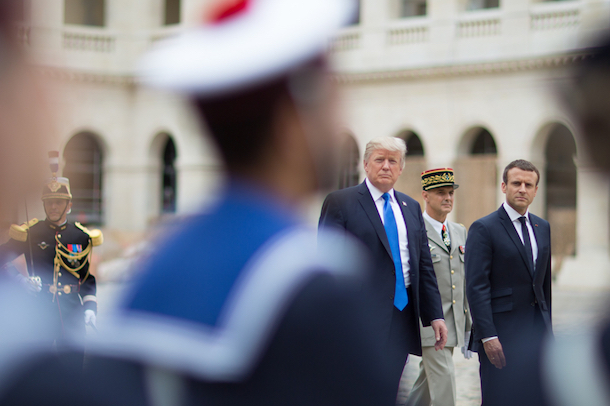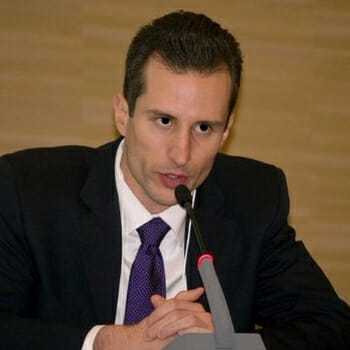
Emmanuel Macron’s Bid to “Make France Great Again”
In June’s French parliamentary elections, President Emmanuel Macron’s party won 350 out of 577 seats, or 61% of the lower house. 39-year old Macron was voted head of state in May, securing victory for his party, La République En Marche! (LREM), which was only created in April 2016. Both elections were unprecedented and a historic upset for France’s traditional left and right parties, which for the last 60 years had enjoyed a duopoly over political power. This is truly new: in my lifetime, I have not witnessed such changes in my motherland.
Results left the Socialist Party with a mere 7.8% of seats, what many attribute to the failings of François Hollande, who was in office before Macron. The conservative right obtained 24%, upon having been widely expected to win several weeks ago. And while not a ‘traditional’ party, the extreme right National Front went from being a true contender for the presidential palace to garnering solely 8 seats (1.4%) – what a change!
Centrist and pro-business Macron, who cruised to the presidential palace on a wave of popularity, presently enjoys a sizable majority in Parliament. It is now up to him and his team of political novices, many of whom are minorities and women, to completely reform a nation fed up with traditional politics and politicians.
Enthusiasm has grown for a country burdened with high unemployment and a lack of opportunities for even the most skilled. The French, both at home and abroad, sense that their nation might finally have a real chance to reform.
The political power Macron currently holds threatens some but represents a concrete ability to deliver on his promises to ‘disrupt’ the country. While the conservative right (Les Républicains) may present some opposition to his program, the breadth of LREM’s ideas, oftentimes freely borrowed from the left and the right, should keep it above the fray of any concentrated disagreement. In other words, there is no real opposition today.
LREM’s victories are clearly positive for Europe as well: Macron’s pro-EU agenda has alleviated concerns over nationalism created by Brexit and the election of Donald Trump.

Nevertheless, there are real challenges to overcome for France to change. Despite its victory, when factoring in record high absenteeism (56%), LREM lacked wide-ranging support during the parliamentary election. Besides, LREM’s deputies often have no political experience while they will seek to reform what has historically cost many a political career: the labor market. Strikes and the street have often been the ultimate political forces. It is what Macron will be up against, as he will take powerful unions and lobbies head on, in the fall.
Holding military parades, hosting meetings in the Palace of Versailles and occasionally publicly displaying swift authority (he recently forced France’s top military officer to step down over a budget fight), Macron has adopted a self-described ‘Jupitarian,’ regal approach to governing France. Come September, this approach must allow for tact: needless to say, it is in direct opposition to the working class and the blue collar culture of union leaders.
All the more, Macron’s attitude, perceived recently as confrontational, has cost him a large drop in popularity: his approval rating went South 10 points to 54% from June to July, one of the fastest drops ever for a French president taking office. Indeed, he announced pay freezes for public workers and an overall decrease in public spending. That said, reforming is sometimes at odds with being popular, and part of Macron’s popularity decline might also have to do with the drastic differences with his predecessor Hollande’s demeanor, which was deemed extremely soft.
France isn’t the only Western nation currently walking an unbeaten path. We in the United States have a president with no prior political experience. Like Macron, Trump (who visited the French president last week over Bastille Day) was a long-shot candidate running on a nontraditional platform buttressed by a tech-savvy, shoe-string budget campaign. His election, like Macron’s, also proved a shock to the establishment.
Once elected, Macron allowed his team to evolve more than Trump’s by appointing several known figures to minister positions. At the same time, he gave a chance to high achievers who wouldn’t have a background in policy-making by surrounding himself with staff from the private sector. Trump, on the other hand, seems to have valued keeping his inner circle to his family and past business associates mainly, with a few exceptions.
In some sense, erudite Macron is the antithesis of rough-and-tumble Trump. While Trump holds the most power in the Western World, Macron leads in popularity. Moreover, Angela Merkel has been contested both in and outside of Germany for her stances on the EU; hence, Macron has an opening to become Europe’s most listened to voice.
He is in a good position to become a historically significant figure: his domestic economy has begun to pick up, his predecessor Hollande set a low bar for success (he reached 4% in approval ratings at some point) and given the political power at his disposal, he may succeed in pushing through real change in France. Could he become Europe’s golden boy? Optimism is de rigueur, and Macron has a chance to Make France Great Again!

